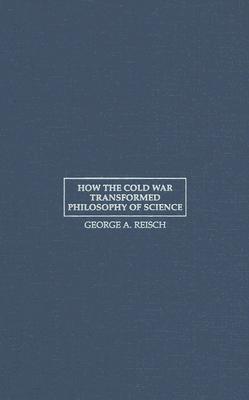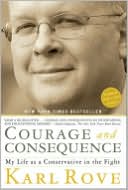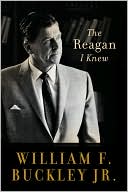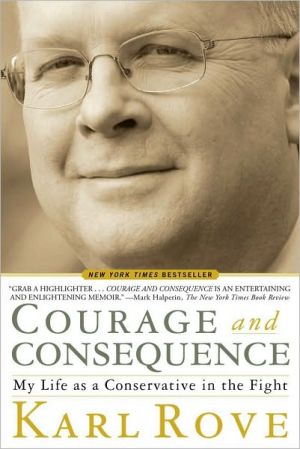How the Cold War Transformed Philosophy of Science: To the Icy Slopes of Logic
This in-depth study of the development of philosophy of science studies in the United States during the Cold War documents the political vitality of logical empiricism and Otto Neurath's Unity of Science Movement when the movement emigrated to the U.S. in the 1930s. It follows its de-politicization by a convergence of intellectual, cultural and political forces in the 1950s. The volume will be of interest to philosophers and historians of science, as well as scholars of Cold War studies.
Search in google:
First in-depth study of the development of philosophy of science during the Cold War.
\ Cambridge University Press\ 0521837979 - How the Cold War Transformed Philosophy of Science - To the Icy Slopes of Logic - by George A. Reisch\ Excerpt\ \ \ \ \ 1\ An Introduction to Logical Empiricism and the Unity of Science Movement in the Cold War\ \ \ \ For those interested in the history of philosophy of science, logical empiricism holds a special attraction. Like old sepia-toned photographs of ancestors who made our lives possible by surviving wars, emigrations, and the vicissitudes of times gone by, logical empiricism holds the nostalgic allure of the smoky Viennese cafés where much of it took shape some eighty years ago. The setting and the story are irresistible. In the Vienna of Freud, Schoenberg, Wittgenstein, and other twentieth-century luminaries, the philosophers, mathematicians, and logicians making up the Vienna Circle were surrounded by intellectual creativity. They themselves were on the front lines of the century's exciting developments in physics and logic. The core members included Moritz Schlick, Rudolf Carnap, Kurt Gödel, Philipp Frank, and Otto Neurath, while their colleagues and devotees in Europe and America included Hans Reichenbach, Carl Hempel, Ernest Nagel, and W. V. O. Quine. Until the circle's dissolution and demise in the early 1930s, these present and future leaders in philosophy met regularly at the University of Vienna and at various cafés to debate their ideas about knowledge, science, logic, and language. As they sipped coffee and lit their pipes, they ignited nothing less than a revolution in philosophy and bequeathed to us the discipline we know today as philosophy of science.\ Nostalgia, of course, carries little philosophical weight. Most contemporary philosophers, however much they may appreciate logical empiricism as their profession's founding movement, agree that in the 1950s and '60s logical empiricism was revealed to be a catalog of mistakes, misjudgments, and oversimplifications about science and epistemology. Much has changed in philosophy of science. Most visibly, the cafés of the 1920s have given way to styrofoam coffee cups and fluorescent lights of corporate hotels where philosophers of science, now representing a well-established academic field, convene to network, debate issues, and conduct their business in higher education.\ Yet recent research has shown that the profession's journey from European cafés to corporate hotels involved more than growth in membership, a change of national venue, and improved, revised beliefs about science and epistemology. It also involved sweeping and substantive changes that are only now coming into focus. The more we learn about early logical empiricism - its basic values, goals, methods, and the sense of historical mission shared by some of its practitioners - the more foreign and distant it seems when compared with contemporary philosophy of science. Thus, two general questions continue to drive studies about the Vienna Circle and early logical empiricism: What, precisely, was logical empiricism originally all about? and, the main topic of this book, How did philosophy of science evolve into the very different form it takes today?\ Compelling answers to the first question began appearing in the 1970s when historians and philosophers began to recover and interpret the rich history of logical empiricism.1 With such a wide cast of characters, whose specialties lay in philosophy, logic, mathematics, and social science, it has become clear that most early logical empiricists, though not all, were as passionate about problems in culture and politics as they were about technical philosophy and epistemology. Neurath, Carnap, and Frank, in particular, actively sought to forge personal, intellectual, and institutional connections between logical empiricism and various cultural and political institutions and movements in Europe. These include Carnap's lifelong interest in artificial international languages and Neurath's work in museums, public education, and the ISOTYPE system of visual iconography, whose graphic descendants are now ubiquitous in airports, shopping malls, and other public spaces. Neurath, Carnap, Herbert Feigl, and Hans Reichenbach were invited to lecture at the Bauhaus, while Neurath additionally collaborated with the Belgiand International Congress for Modern Architecture (CIAM) (Faludi 1989; Galison 1990). There were also debates with Marxists (including Lenin) and Critical Theorists of the Frankfurt school (Lenin 1908; Horkheimer 1937; Dahms 1994) as well as Philipp Frank's attempts to befriend neo-Thomist critics of scientism and positivism at the annual Conferences on Science, Philosophy and Religion in New York City in the 1940s (Frank 1950). At least two logical empiricists, moreover, did not just debate matters of political theory or national and economic policy. Neurath had a tumultuous and nearly fatal role in the Bavarian socialist revolution of 1919 and was later hired by Moscow for his ISOTYPE talents. Hans Reichenbach's socialist student activism at the University of Berlin cost him his chances of later gaining employment there.2\ The Vienna Circle specifically reached out to the wider public to promote their critique of traditional philosophy and to popularize their Wissenschaftliche Weltauffassung, or scientific world-conception, as a replacement. They did so in Vienna through the Ernst Mach Society and its public lectures, and they did so in Europe and America via Otto Neurath's Unity of Science movement. The movement promoted the task of unifying and coordinating the sciences so that they could be better used as tools for the deliberate shaping and planning of modern life. And it sought to cultivate epistemological and scientific sophistication among even ordinary citizens so that they might better evaluate obscurantist rhetoric from reactionary and antiscientific quarters and better contribute to planning a future unified science that would assist society's collective goals.\ Together, logical empiricism and Neurath's Unity of Science movement were in the business of Aufklärung (Scott 1987; Uebel 1998). They sought nothing less than to specify and to help fulfill the promise of the eighteenth-century French Enlightenment while taking full advantage of twentieth-century developments in science, logic, social thought, and politics. This constructive, enlightenment agenda is the main subject of this book. For only by once again putting these ambitions of logical empiricism in plain view can we see both how much philosophy of science has changed in the last half of the twentieth century and, in turn, what kinds of conditions and forces were involved in its transformation.\ \ The Conventional Wisdom about Logical Empiricism\ Before introducing this book's main thesis, it is helpful to consider some of the conventional - and mostly misleading - wisdom about logical empiricism. Before this recent flowering of interest and research, its cultural scope and scientific ambitions were obscured by several circumstances, especially in the English-speaking philosophical world. One factor remains logical empiricism's attacks on traditional and contemporary metaphysics and pseudoscience. These were vivid displays of analytical fireworks that helped to stamp the project with a negative, eliminative character. In addition, until Neurath's writings began to be translated and published in English in the 1970s, his constructive interests in unified science and politics and his finely tuned epistemological insights about language and science were obscured by his reputation as the "original neo-positivist caveman" (Uebel 1991, 5) who thumped his club on the ground and muttered Machisms such as "blue here now." Another factor was the influence of Rudolf Carnap's Der Logische Aufbau der Welt (Carnap 1969), which, however much it naturally and deservedly captures philosophical attention, is wrongly taken as a paradigm for logical empiricism as a whole. Taken together, these and other factors helped to create an impression that logical empiricism, even despite its subsequent liberalizations and changes, was an early, phenomenalistic moment in the history of Western epistemology, and little more.\ Popular secondary writings also helped to obscure logical empiricism's cultural engagements. Karl Popper's influential Logic of Scientific Discovery (Popper 1935) and his widely read essay, "Science: Conjectures and Refutations" (Popper 1969), trumpeted his conceit that he alone diagnosed an inductivist fallacy at logical empiricism's core (thereby reinforcing the view that its project was essentially, if not also exclusively, epistemological). A. J. Ayer's even more widely read Language, Truth and Logic (Ayer 1936) presented logical empiricism as mainly Carnapian philosophy of science (up through logical syntax (Carnap 1937c)) viewed through the lens of Wittgensteinian ordinary language philosophy. Philosophy's point and purpose, and hence logical empiricism's, Ayer explained, was merely (but not unimportantly) to assist the progress of science, whenever called on, by providing clarifying analyses of scientific language (Ayer 1936, 152). While Ayer's account was faithful to the movement's iconoclasm - its rejection of metaphysics, its flirtations with verificationism and foundationalism, and its rejection of a synthetic a priori - it does not mention logical empiricism's constructive ambitions. Save for two footnotes, Neurath's voice is missing from Language, Truth and Logic because Ayer sought "to emphasize not so much the unity of science" - the topic and goal dearest to Neurath - "as the unity of philosophy with science" (ibid., p. 151). That logical empiricism was conceived by its founders in part to assist the coordination and coordinated use of scientific knowledge, to help modernize and improve life, education, and social and economic organization, is a fact no reader of Ayer's book will surmise.\ If Ayer collapsed logical empiricism's broad agenda into a narrow but active scientific project, by the 1970s logical empiricism was reduced further. No longer a participant in science, it was remembered as a school of commentary about science. Suppe's compendium The Structure of Scientific Theories (Suppe 1977), which sits near Language, Truth and Logic on every philosopher of science's bookshelf, presented logical empiricism as a set of propositions about science and its methods. Much as some members of the Vienna Circle feared, as we see below, logical empiricism became, and was remembered as, a sect whose doctrines were verificationism, inductivism, and phenomenalism. Suppe wrote that this narrow, strictly epistemological agenda exhausted logical empiricism's legacy:\ For over thirty years logical positivism provided the basic framework for posing problems about the nature of scientific knowledge and also imposed constraints on what would count as appropriate solutions to these problems: Singular knowledge of directly observable phenomena was nonproblematic, whereas the remaining knowledge science purported to provide was problematic at best. (Suppe 1977, 617)\ By the late 1960s when Suppe wrote this, logical empiricism was widely considered defunct and this characterization of the program provided a convenient way to understand its demise. What the program offered for analyzing "the remaining knowledge science purported to provide" were models of explanation, reduction, induction, and confirmation that were themselves found wanting. Two influential works, Quine's "Two Dogmas of Empiricism" (Quine 1951) and Kuhn's famous Structure of Scientific Revolutions (Kuhn 1962), were by then helping to solidify consensus. Among other problems, logical empiricism was internally crippled, according to Quine, by the unspecifiability (without moving in a circle) of an analytic-synthetic distinction. According to Kuhn, it was unable to elucidate science's conceptual holism and the alleged theoretical and linguistic discontinuities that punctuate science's history and, many presumed, its essential nature. Logical empiricism was in sad shape. It had lost its connections to scientific practice, could hardly stand up under its own conceptual weight, and the science it aimed to interpret was shown by historical research to be merely an idealized fiction existing only in philosophers' imaginations.\ \ A New Explanation for the Demise of Logical Empiricism\ Knowing as we do now that logical empiricism was originally a philosophical project with cultural and social ambitions, the time is ripe to inquire how the discipline was transformed and how these cultural and social ambitions were lost. The answer defended here is that it was transformed during the 1950s at least partly, if not mainly, by political pressures that were common throughout civic as well as intellectual life during the Cold War following World War II. In large part, these pressures led logical empiricism to shed its cultural and social engagements by shedding Neurath's Unity of Science movement. The movement was not merely a public, scientific front for an otherwise independent philosophical program. It helped to determine which kinds of questions and research topics were pursued, and how they were pursued, at the heart of philosophy of science.\ This is not to say that, were it not for the Cold War, contemporary philosophy of science would now be some kind of nonacademic public servant. The claim, rather, is that logical empiricism originally aspired both to technical, philosophical sophistication as well as to engagement with scientists and modern social and economic trends. The Cold War, this book argues, made that agenda impossible and effectively forced the discipline to take the apolitical, highly abstract form remembered in Suppe's Structure of Scientific Theories. The chasm that yawns between that book and the Vienna Circle's combative manifesto, Wissenschaftliche Weltauffassung, in other words, was created by the Cold War. Nor does this interpretation dismiss the perspicuity of Quine's, Kuhn's, and other criticisms of logical empiricism. It does claim, however, that the power of these political forces must be acknowledged and that we begin to assemble, as sketched below, a more complicated and more accurate story of philosophy of science in the twentieth century.\ One historiographic (and ultimately metaphysical) aside may help to dismantle a prejudice that this thesis is likely to meet. It comes, appropriately, from Neurath, who, as we see below, fought many battles with other philosophers whose influence and reputation came to overshadow his own. One guiding element in these debates was Neurath's multifaceted pluralism and, especially, his criticisms of what he called "absolutism." For example, Neurath criticized Carnap's and Tarski's semantic theory of truth (which held, for example, that the statement "the snow is white" is true if and only if the snow is white) on the ground that it erected a dual order in which language speaks first about itself, and then the world, in order to allow a comparison of these reports and a determination of whether truth-conditions obtain.\ Neurath objected because, he insisted, a healthy empiricism cannot ever - even in philosophical abstraction - ignore the practical conditions in which language and science operate. Thus, in his famously cumbersome model of protocol statements -\ Otto's protocol at 3:17 o'clock: [At 3:16 o'clock Otto said to himself: (at 3:15 o'clock there was a table in the room perceived by Otto)] (Neurath 1932/33, 93) -\ the statement's outermost report is always about a specific person and what they believe they see and know about the snow or table before them. For Neurath, there is no legitimate dualism of language and the world that a theory of truth may invoke. Knowledge, speech, language, and behavior remain always, as Nancy Cartwright and Thomas Uebel have emp- hasized for our understanding of Neurath, in the same "earthly plane."3\ Here lay, for example, one of Neurath's antipathies to Popperianism. In Popper's metaphysics of first, second, and third worlds, the last is populated like Plato's heaven by objective concepts or objects studied by generations of philosophers and scientists. Pythagoras and contemporary students in seventh grade, Popper reasoned, can know and understand Pythagoras' theorem as the same thing because it enjoys ontological status as an enduring, timeless object. Neurath would have none of this, and neither will any philosopher who is sympathetic with this book's political thesis.4 For if philosophy of science is devoted to the study of anything like such an ontological domain of metaphysical objects or conditions - truth, explanation, confirmation, meaningfulness, analyticity, and so on - the claim that political forces controlled its career in America will always be trumped by the reply that political forces could cause, at most, a temporary diversion in philosophy's historical development. Politics could never fundamentally change the discipline precisely because political forces cannot (and therefore did not) connect with the otherworldly objects that, as philosophers investigate them, guide philosophical practice.\ This multiplication of worlds is fatuous metaphysics, Neurath would say, much as he barked "Metaphysics!" "Metaphysics!" (and later, to save his voice, just "M!") at the Thursday evening meetings of the Vienna Circle.5 It is metaphysical for Neurath because it has no place within an honest, empirical, and scientific depiction of philosophy of science as something that (some) human beings do in our earthly plane. Philosophy of science must be conceived as a set of practices, values, goals, and jargons that are chosen, utilized, and (hopefully) improved by individuals for their intellectual pursuits. These practices are taught to others and modified by debate as well as by often undetected historical or sociological pressures. All of these processes and the agents that sustain them exist in the same earthly plane, right alongside culture, society, and politics.\ As this book shows, many choices made by first-generation logical empiricists and their students were made alongside intellectual, institutional, and personal pressures arising directly out of the Cold War and McCarthyism. This will explain both how philosophy of science was radically changed and depoliticized by these pressures and how this thesis ought to seem no more implausible than the better known fact that Hollywood movie making was also transformed by McCarthyism. There is neither a heavenly Idea of entertainment that controls the history of cinema nor a timeless, objective domain of intellectual pursuits and values lording over the philosophy of science.\ \ The Unity of Science Movement and the International Encyclopedia of Unified Science\ Logical empiricism came to America during the 1930s. With the exception of Herbert Feigl, who emigrated in 1930, the main wave began mid-decade and included Rudolf Carnap in 1935, Karl Menger in 1936, Carl Hempel in 1937, Hans Reichenbach, Felix Kaufman, Gustav Bergmann, and Philipp Frank in 1938, and Kurt Gödel and Edgar Zilsel in 1939 (Stadler 2001). Most came to America as participants in Neurath's Unity of Science movement. Though Neurath himself never emigrated to America (despite the advice and wishes of his colleagues), he promoted and organized the movement from Holland, and later England, while taking several trips to America as this wave of emigration came ashore. The movement thus became a kind of institutional home-away-from-home for the émigré philosophers, one that helped them maintain the contact, dialogue, and intellectual focus they had provided for each other in Vienna, Berlin, and Prague.6 As we see below, it also facilitated connections between the émigrés and American philosophers who, in some cases, were already in pursuit of a socially and politically engaged program in philosophy of science.\ The Unity of Science movement was also the public, pedagogic, and scientific voice of logical empiricism. It consisted of a series of International Congresses for the Unity of Science (held in Prague, 1934; Paris, 1935; Copenhagen, 1936; Paris, 1937; Cambridge, England, 1938; Cambridge, Massachusetts, 1939; and Chicago, 1941); publications such as the International Encyclopedia of Unified Science and a short-lived English incarnation of Erkenntnis titled the Journal of Unified Science; regular announcements and items appearing in journals such as Philosophy of Science and Synthese; and some coverage in the popular media (such as Time and the New York Times). The logical empiricists were received in America both as representatives of a new social and cultural movement and as intellectuals, philosophers, and logicians.\ To contemporary philosophers, the familiar item in this list is the International Encyclopedia of Unified Science, which for decades was mentioned on or near the title page of Kuhn's famous Structure of Scientific Revolutions. Though from its beginning it had an influential life of its own, Kuhn's book was originally commissioned as a monograph for the Encyclopedia after the task of writing a historical monograph had been passed from the Italian philosopher and historian Federigo Enriques, to George Sarton (who declined), to I. B. Cohen, and, finally, to Kuhn. Though no one has produced a detailed, historical account of how Kuhn's monograph and its ideas were influenced by the Unity of Science movement, enough has been learned to dismiss one persistent commonplace, namely, that Kuhn refuted logical empiricism, Trojan-horse style.7 Kuhn's book was written in the last years of the 1950s and was published in 1962 when the encyclopedia project was moribund, roughly a decade after its last burst of vitality in the early 1950s (Reisch 1995). Something else, therefore, already killed the Encyclopedia and the larger Unity of Science movement. The culprit is plainly suggested by the dates of the International Congresses listed above: The second world war nearly halted the movement, and despite earnest efforts by some of its leaders, pressures of the Cold War prevented it from ever recovering momentum.\ Over the course of its history, these leaders were Otto Neurath, Rudolf Carnap, Philipp Frank, and the American pragmatist philosopher Charles Morris. Morris, at the University of Chicago, was extremely helpful in assisting the emigration of logical empiricism. He lectured and wrote often in the 1930s about the new Unity of Science movement, its cultural and political importance, and its proper place alongside American pragmatism as part of a comprehensive theory of signs. Following Charles Sanders Peirce, Morris called this theory "semiotic" and tirelessly promoted it as the future of philosophy (Morris 1937). At the same time, Morris assisted his colleagues' emigrations. He first met them in Prague in 1934, at the Eighth International Congress of Philosophy where Neurath held his first meeting on behalf of the Unity of Science movement and the new encyclopedia project. Morris advised those planning to come to America that they should promptly publish an article or book in English before seeking a position in an American college or university. Several took his advice and his offers to help. Morris soon found himself arranging translations, putting authors in contact with publishers, and writing letters to friends and colleagues in the United States who might possibly hire a scientific philosopher.8 With Morris's help, Reichenbach found a position at UCLA, Frank took a nontenured position at Harvard, and, in 1936, Carnap arrived at Morris's University of Chicago (after a one-year position at Harvard). Besides all this activity, as well as his own writing and teaching, Morris enticed the University of Chicago Press to publish Neurath's new International Encyclopedia of Unified Science.\ With good reason, Morris hoped that his university would become the center of the Unity of Science movement in America. From Chicago, he and Carnap edited the Encyclopedia as its monographs began appearing in 1938, while Neurath, its editor-in-chief, lived in Holland. Morris also assumed most of the negotiations with the University of Chicago Press, negotiations that were often complicated and strained, especially those concerning the movement's plan to rescue Erkenntnis - logical empiricism's original European voice - by purchasing it from the German publisher Felix Meiner (Reisch 1995). Still, despite these and other difficulties, the Encyclopedia was initially a great success. Wary about committing to a long-term project that might not carry its financial weight, the Press agreed to publish the Encyclopedia on the condition that they receive at least 250 advanced subscriptions. That hurdle was easily cleared. Some 500 had been received for the first, introductory unit, titled Foundations of the Unity of Science, which contains the twenty monographs of the Encyclopedia that exist today. Individual monographs were also selling briskly in bookstores.9 Although they fell behind their original schedule to publish one monograph per month - in part because of Neurath's distance10 - the editors were pleased and the Press never doubted its decision to accept the project.\ \ \ \ \ © Cambridge University Press
1An introduction to logical empiricism and the unity of science movement in the cold war12Otto Neurath, Charles Morris, Rudolf Carnap, and Philipp Frank : political philosophers of science273Leftist philosophy of science in America and the reception of logical empiricism in New York city574"Doomed in advance to defeat"? John Dewey on reductionism, values, and the international encyclopedia of unified science835Red philosophy of science : Blumberg, Malisoff, Somerville, and early Philosophy of Science966The view from the left : logical empiricism and radical philosophers1187The view from the far left : logical empiricism and communist philosophers1368Postwar disillusionment, anti-intellectualism, and the values debate1499Horace Kallen's attack on the unity of science16710Creeping totalitarianism, creeping scholasticism : Neurath, Frank, and the trouble with semantics19111Frank's Neurathian Crusade : science, enlightenment, and values20812"A very fertile field for investigation" : anticollectivism and anticommunism in popular and academic culture23413Anticommunist investigations, loyalty oaths, and the wrath of Sidney Hook25914Competing programs for postwar philosophy of science28315Freedom celebrated : the professional decline of Philipp Frank and the unity of science movement30716The marginalization of Charles Morris33117Values, axioms, and the icy slopes of logic34418Professionalism, power, and what might have been369








